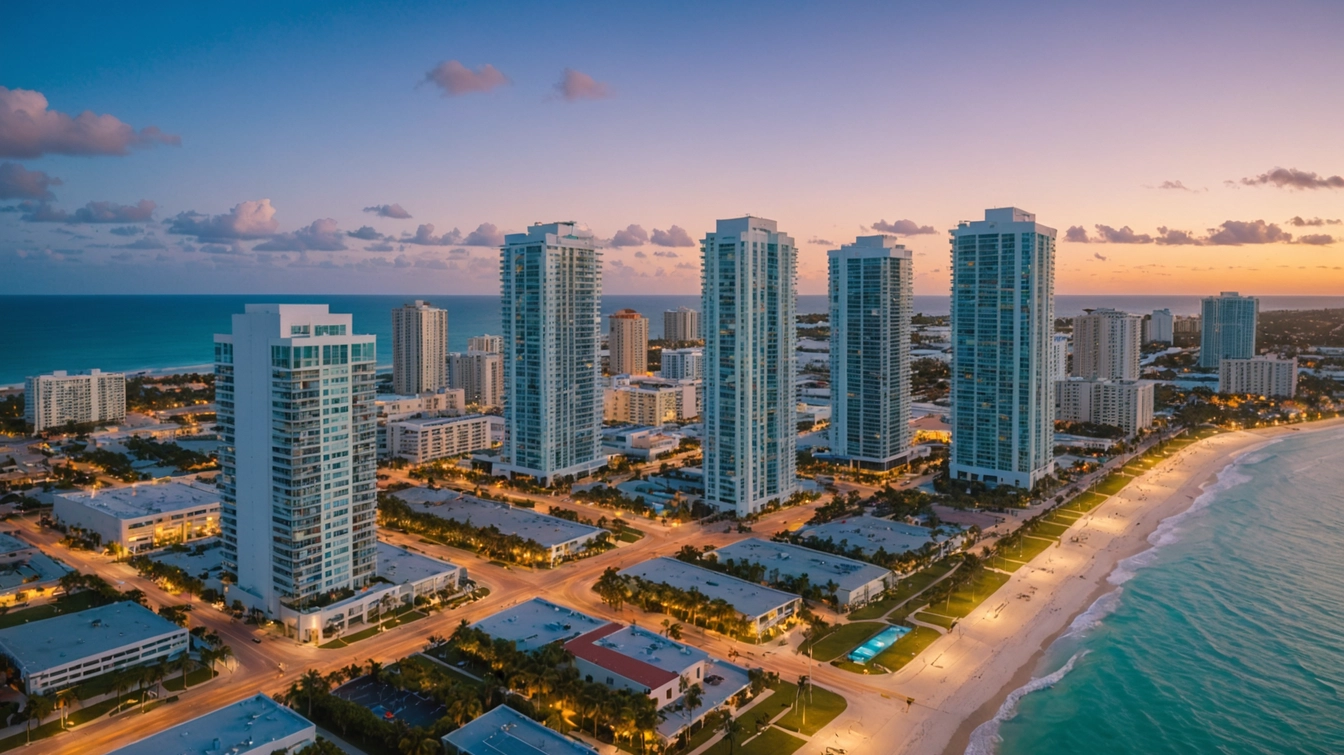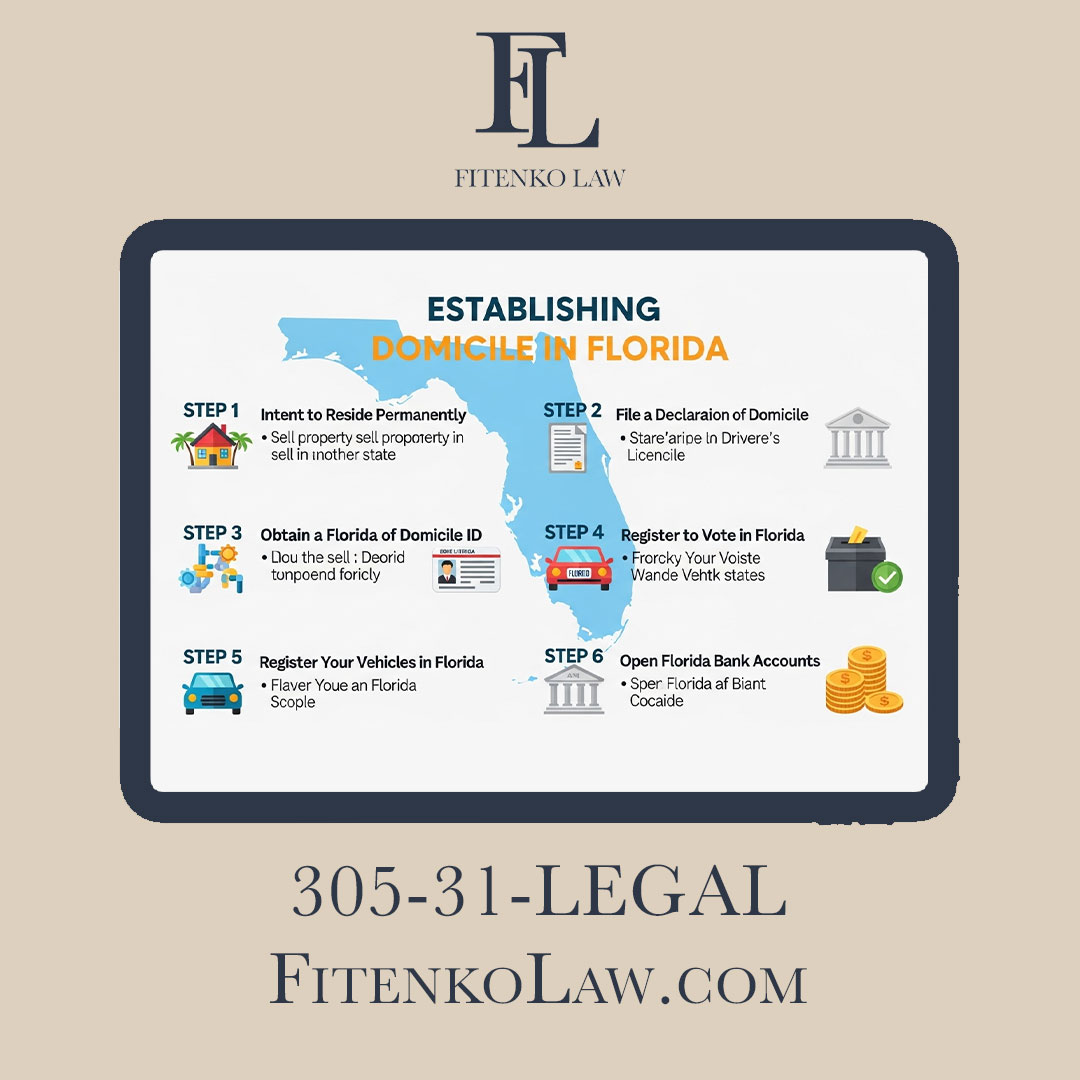Reuniting Families: Your Comprehensive Guide to Green Cards in Florida
At the very heart of the United States immigration system lies a fundamental principle: family unity. For U.S. citizens and Lawful Permanent Residents (green card holders), the ability to bring their closest relatives to America is one of the most cherished rights. However, the path to obtaining a family-based green card is a complex legal journey, filled with strict requirements, lengthy waits, and potential pitfalls. Any mistake on a petition can lead to delays of years or even an outright denial, keeping families separated.
At Fitenko Law, a firm rooted in the heart of South Florida, we understand that more than just paperwork is at stake—your future with the people you love is on the line. Our office in Hallandale Beach serves as a trusted guide for families in communities like Aventura, Sunny Isles, and across the region. We provide compassionate yet meticulous legal representation in all aspects of family-based immigration. This detailed guide will illuminate the process, clarify the categories, and empower you with the knowledge needed to navigate this journey with confidence.
The Foundation of Family Immigration: Who Can Sponsor a Relative?
The process always begins with a sponsor—a U.S. citizen or a green card holder who files a petition on behalf of their foreign relative. The sponsor’s status is the single most important factor, determining who can be sponsored and how quickly the case will move forward. It is crucial to understand this key distinction from the very beginning.
- U.S. Citizen Sponsors: They have the broadest sponsorship rights. Citizens can petition for their spouses, children (of any age, married or unmarried), parents, and siblings.
- Lawful Permanent Resident (LPR) Sponsors: Their options are more limited. Green card holders can only petition for their spouses and their unmarried children.
This distinction creates two primary universes within family immigration. Each of these worlds has its own sub-categories, timelines, and rules. Our dedicated team at Fitenko Law helps clients understand which category applies to them and devises a strategy for the most efficient path forward. Contact us to discuss your specific situation.
Sponsorship by U.S. Citizens: Categories and Timelines
U.S. citizens are given the highest priority in the family-based immigration system. The law divides the relatives of U.S. citizens into two groups: “Immediate Relatives” and “Family Preference Categories.” This division is the most critical factor determining the speed of the entire process.
The “Immediate Relative” (IR) Category: The Fastest Path
The Immediate Relative (IR) category is the most privileged. Its primary advantage is that there are no annual quotas or caps on the number of visas issued. This means there is no need to wait for years for a visa number to become available in the Visa Bulletin. Once the Form I-130, Petition for Alien Relative, is approved, the case can proceed to the final stages.
Immediate Relatives are strictly defined as:
- Spouses of U.S. citizens (IR-1/CR-1).
- Unmarried children under 21 years of age of U.S. citizens (IR-2).
- Parents of U.S. citizens (IR-5), provided the sponsoring U.S. citizen is at least 21 years old.
Even without quotas, the green card process for an immediate relative takes time—typically between 12 and 24 months, depending on whether the relative is in the U.S. or abroad and on the current backlogs at USCIS and consular posts. Nevertheless, this is the most direct and predictable path to family reunification. Our skilled attorneys ensure that the petition is filed flawlessly from the start to avoid any unnecessary and frustrating delays.
A Deep Dive into Marriage-Based Green Cards (IR-1/CR-1)
Marriage to a U.S. citizen is the most common path to a family-based green card. If the marriage is less than two years old at the time the green card is approved, the foreign spouse receives a “conditional” green card (CR-1), valid for two years. If the marriage is more than two years old, a “permanent” 10-year green card (IR-1) is issued. This process requires overwhelming proof of a bona fide marriage.
USCIS scrutinizes marriage petitions carefully to detect fraudulent relationships entered into for the purpose of circumventing immigration laws. You must provide extensive documentation proving that your relationship is genuine, such as:
- Evidence of joint finances, like shared bank accounts and credit cards.
- Joint property documents, such as leases or deeds to a home.
- Shared insurance policies (health, life, auto).
- Birth certificates of any children you have together.
- Photographs spanning the course of your relationship, correspondence, and tickets from trips taken together.
- Affidavits from friends and family testifying to the authenticity of your relationship.
We help our clients in Sunny Isles and surrounding communities assemble a compelling evidence package that leaves no doubt in the immigration officer’s mind about the legitimacy of their union. You can learn more by visiting our informative blog.
The Family Preference Categories: Navigating the Quota System
For other relatives of U.S. citizens who do not qualify as “immediate,” a “Family Preference” system is used. A limited number of visas are allocated to these categories each year, which creates a queue. An individual’s place in the queue is determined by their “priority date”—the date the I-130 petition was officially filed.
The U.S. Department of State publishes a monthly Visa Bulletin that shows which priority dates are currently being processed. The wait can last from several years to more than a decade, depending on the category and the relative’s country of origin.
The preference categories for relatives of U.S. citizens are:
- First Preference (F1): Unmarried sons and daughters (21 years of age and older) of U.S. citizens.
- Third Preference (F3): Married sons and daughters (of any age) of U.S. citizens.
- Fourth Preference (F4): Brothers and sisters of U.S. citizens (if the U.S. citizen sponsor is 21 or older).
Managing a case during a long waiting period requires careful attention. For example, if an unmarried son in the F1 category gets married, he is no longer eligible for that category and must be moved to the F3 category, which can significantly lengthen the wait. We counsel clients on how life changes can impact their case and how to plan accordingly.
Sponsorship by Green Card Holders (LPRs)
Lawful Permanent Residents can also reunite with their close family members, but their options are more restricted. They can petition for only two categories of relatives, and both are subject to the quota system.
The categories for relatives of green card holders are:
- Preference Category F2A: Spouses and unmarried children (under 21) of LPRs.
- Preference Category F2B: Unmarried sons and daughters (21 and over) of LPRs.
Historically, the wait time in the F2A category has been relatively short, but it can fluctuate. The F2B category typically involves a longer wait. A crucial strategic consideration is the naturalization of the sponsor. If a green card holder becomes a U.S. citizen while the petition is pending, the petition for their spouse or minor child is automatically converted to the Immediate Relative category, eliminating the remaining quota wait time. We help clients in Aventura and nearby areas plan for this important transition.
The Key Stages of the Process: From Petition to Green Card
Regardless of the category, the family-based green card process consists of several key stages. Understanding this sequence will help you better navigate the journey ahead.
Step 1: Filing the I-130 Petition
It all begins with the sponsor filing Form I-130, Petition for Alien Relative, with U.S. Citizenship and Immigration Services (USCIS). This petition establishes the existence of a valid family relationship. It must be accompanied by proof of the sponsor’s status (U.S. birth certificate, passport, green card) and proof of the relationship (marriage certificate, birth certificates).
Step 2: USCIS Approval and Awaiting the Priority Date
After reviewing the petition, USCIS sends an approval notice. For Immediate Relatives, the case moves directly to the next stage. For relatives in the preference categories, this approval establishes their “priority date.” They must now wait for their date to become “current” in the Visa Bulletin. This waiting period can be the longest and most frustrating part of the process.
Step 3: The National Visa Center (NVC) and Financial Sponsorship
Once the I-130 is approved (and the priority date is current), the case is transferred to the National Visa Center (NVC). The NVC collects the necessary documents and fees before sending the case to the U.S. consulate abroad. At this stage, the sponsor must submit an “Affidavit of Support” (Form I-864). This is a legally binding contract in which the sponsor proves their income or assets are sufficient to financially support the immigrant, ensuring they will not become a “public charge.” If the sponsor’s income is insufficient, a joint sponsor may be used. The income requirements can be found on the official USCIS website.
Step 4: The Final Hurdle – Consular Interview or Adjustment of Status
The final stage depends on where the foreign relative is located.
- Consular Processing: If the relative is abroad, they will be scheduled for an interview at a U.S. embassy or consulate in their country. The consular officer will review all documents and ask questions about the relationship with the sponsor. If approved, an immigrant visa is placed in their passport, allowing them to travel to the U.S. The physical green card is then mailed to their U.S. address.
- Adjustment of Status (AOS): If the relative is already legally in the United States (e.g., on a work or student visa), they may be eligible to file Form I-485, Application to Register Permanent Residence or Adjust Status, without leaving the country. This path is available to all Immediate Relatives and to preference category relatives whose priority date is current and who have continuously maintained their lawful status.
The choice between these two paths has significant legal implications. Fitenko Law will help determine the most appropriate and safest option for your family.
Navigating Complex Cases and How We Can Help
Not all family immigration cases are straightforward. Complications often arise that require the intervention of an experienced attorney. Our firm specializes in resolving these challenging situations.
Removing Conditions on a Green Card (Form I-751)
As mentioned, spouses who receive a green card based on a marriage that was less than two years old are granted “conditional” status for two years. Within the 90-day window before this two-year anniversary, the couple must jointly file Form I-751, Petition to Remove Conditions on Residence, to obtain a permanent 10-year green card. They must once again provide evidence that the marriage is still genuine.
Problems arise if the couple divorces or the sponsoring spouse refuses to file the petition. In such cases, it is possible to request a waiver of the joint filing requirement by proving that:
- The marriage was entered into in good faith, but has been terminated through divorce or annulment.
- The immigrant spouse was battered or subjected to extreme cruelty by their U.S. citizen spouse.
- The termination of status and deportation would result in “extreme hardship.”
We help clients in these difficult and emotionally taxing situations to prepare a strong I-751 petition with a waiver request.
Waivers of Inadmissibility
Some applicants may be denied a green card because they are deemed “inadmissible” to the U.S. The reasons can vary widely: previous periods of unlawful presence in the country, fraud or misrepresentation to immigration authorities, certain criminal convictions, and more. In many cases, these bars can be overcome by filing for a waiver of the grounds of inadmissibility.
For example, the I-601A provisional waiver allows relatives of U.S. citizens, whose only violation was unlawful presence, to apply for forgiveness while in the U.S., minimizing time separated from their family. Proving eligibility for a waiver is a difficult task, often requiring a showing of “extreme hardship” to a qualifying U.S. citizen relative. Our team is highly experienced in preparing these complex and evidence-intensive cases.
Integration for Reunited Families: Real Estate and Estate Planning
Once your family is finally reunited in South Florida, new important tasks begin: buying a home, planning your financial future, and protecting your family’s well-being. Fitenko Law offers a uniquely integrated approach to help families during this new phase.
Purchasing your first family home in Hollywood or another community is a landmark event. Our real estate lawyers will ensure the transaction is smooth and your rights are protected. We can assist in structuring the title to the property in a way that aligns with your long-term goals.
Furthermore, it is critical to create or update your estate plan. For mixed-status families, where one spouse is not a U.S. citizen, special estate tax rules apply. Our estate planning attorneys will help you create wills and trusts that provide financial security for your loved ones in accordance with Florida and U.S. law, protecting them from unforeseen taxes and legal complications.
Why Entrust Your Family’s Case to Fitenko Law?
The family reunification process is too important to leave to chance. Choosing the right attorney is an investment in your family’s future. At Fitenko Law, we combine a profound knowledge of immigration law with a sincere desire to help our clients. We understand that behind every petition are real people with their hopes and dreams.
Our boutique approach means you will receive the personalized attention you deserve. You will work directly with an experienced attorney who will handle your case from beginning to end. We are proud of our reputation in the Hallandale Beach community and throughout South Florida as a firm that achieves results with integrity and professionalism.
We invite you to take the first step toward reuniting your family. Contact Fitenko Law today to schedule a confidential consultation. Let us handle the legal complexities so you can focus on what matters most—building your new life, together.






